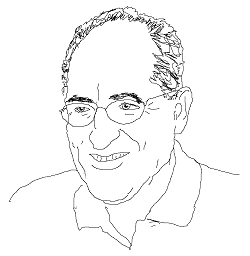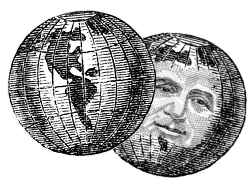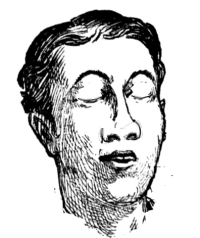 We’ll never understand consciousness, says Edward Witten. Ashutosh Jogalekar’s post here features a video of the eminent physicist talking about fundamentals; the bit about consciousness starts around 1:10 if you’re not interested in string theory and cosmology. John Horgan has also weighed in with some comments; Witten’s view is congenial to him because of his belief that science may be approaching an end state in which many big issues are basically settled while others remain permanently mysterious. Witten himself thinks we might possibly get a “final theory” of physics (maybe even a form of string theory), but guesses that it would be of a tricky kind, so that understanding and exploring the theory would itself be an endless project, rather the way number theory, which looks like a simple subject at first glance, proves to be capable of endless further research.
We’ll never understand consciousness, says Edward Witten. Ashutosh Jogalekar’s post here features a video of the eminent physicist talking about fundamentals; the bit about consciousness starts around 1:10 if you’re not interested in string theory and cosmology. John Horgan has also weighed in with some comments; Witten’s view is congenial to him because of his belief that science may be approaching an end state in which many big issues are basically settled while others remain permanently mysterious. Witten himself thinks we might possibly get a “final theory” of physics (maybe even a form of string theory), but guesses that it would be of a tricky kind, so that understanding and exploring the theory would itself be an endless project, rather the way number theory, which looks like a simple subject at first glance, proves to be capable of endless further research.
Witten, in response to a slightly weird question from the interviewer, declines to define consciousness, saying he prefers to leave it undefined like one of the undefined terms set out at the beginning of a maths book. He feels confident that the workings of the mind will be greatly clarified by ongoing research so that we will come to understand much better how the mechanisms operate. But why these processes are accompanied by something like consciousness seems likely to remain a mystery; no extension of physics that he can imagine seems likely to do the job, including the kind of new quantum mechanics that Roger Penrose believes is needed.
Witten is merely recording his intuitions, so we shouldn’t try to represent him as committed to any strong theoretical position; but his words clearly suggest that he is an optimist on the so-called Easy Problem and a pessimist on the Hard one. The problem he thinks may be unsolvable is the one about why there is “something it is like” to have experiences; what it is that seeing a red rose has over and above the acquisition of mere data.
If so, I think his incredulity joins a long tradition of those who feel intuitively that that kind of consciousness just is radically different from anything explained or explainable by physics. Horgan mentions the Mysterians, notably Colin McGinn, who holds that our brain just isn’t adapted to understanding how subjective experience and the physical world can be reconciled; but we could also invoke Brentano’s contention that mental intentionality is just utterly unlike any physical phenomenon; and even trace the same intuition back to Leibniz’s famous analogy of the mill; no matter what wheels and levers you put in your machine, there’s never going to be anything that could explain a perception (particularly telling given Leibniz’s enthusiasm for calculating machines and his belief that one day thinkers could use them to resolve complex disputes). Indeed, couldn’t we argue that contemporary consciousness sceptics like Dennett and the Churchlands also see an unbridgeable gap between physics and subjective, qualia-having consciousness? The difference is simply that in their eyes this makes that kind of consciousness nonsense, not a mystery.
We have to be a bit wary of trusting our intuitions. The idea that subjective consciousness arises when we’ve got enough neurons firing may sound like the idea that wine comes about when we’ve added enough water to the jar; but the idea that enough ones and zeroes in data registers could ever give rise to a decent game of chess looks pretty strange too.
As those who’ve read earlier posts may know, I think the missing ingredient is simply reality. The extra thing about consciousness that the theory of physics fails to include is just the reality of the experience, the one thing a theory can never include. Of course, the nature of reality is itself a considerable mystery, it just isn’t the one people have thought they were talking about. If I’m right, then Witten’s doubts are well-founded but less worrying than they may seem. If some future genius succeeds in generating an artificial brain with human-style mental functions, then by looking at its structure we’ll only ever see solutions to the Easy Problem, just as we may do in part when looking at normal biological brains. Once we switch on the artificial brain and it starts doing real things, then experience will happen.



